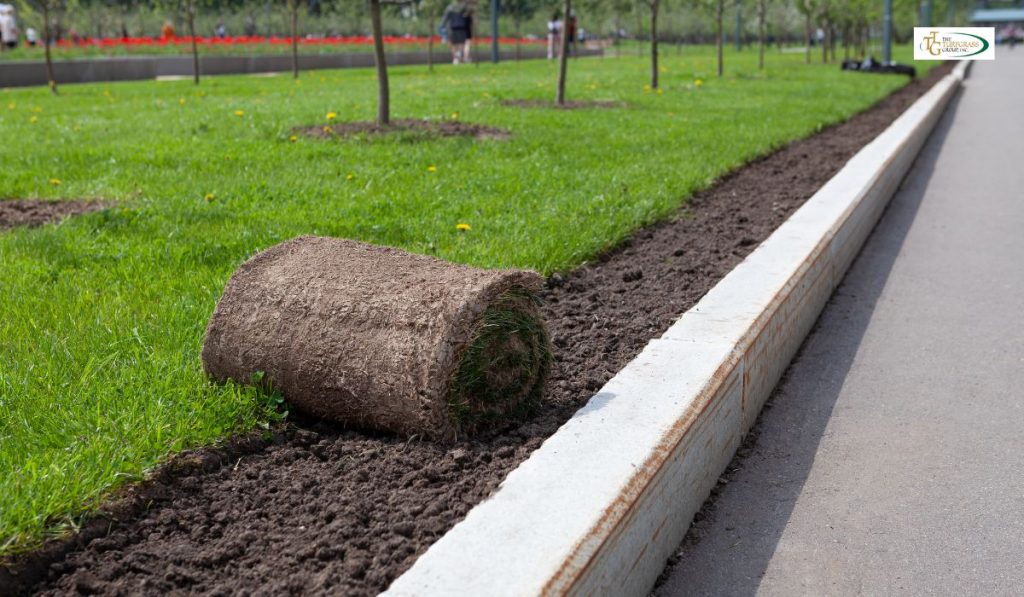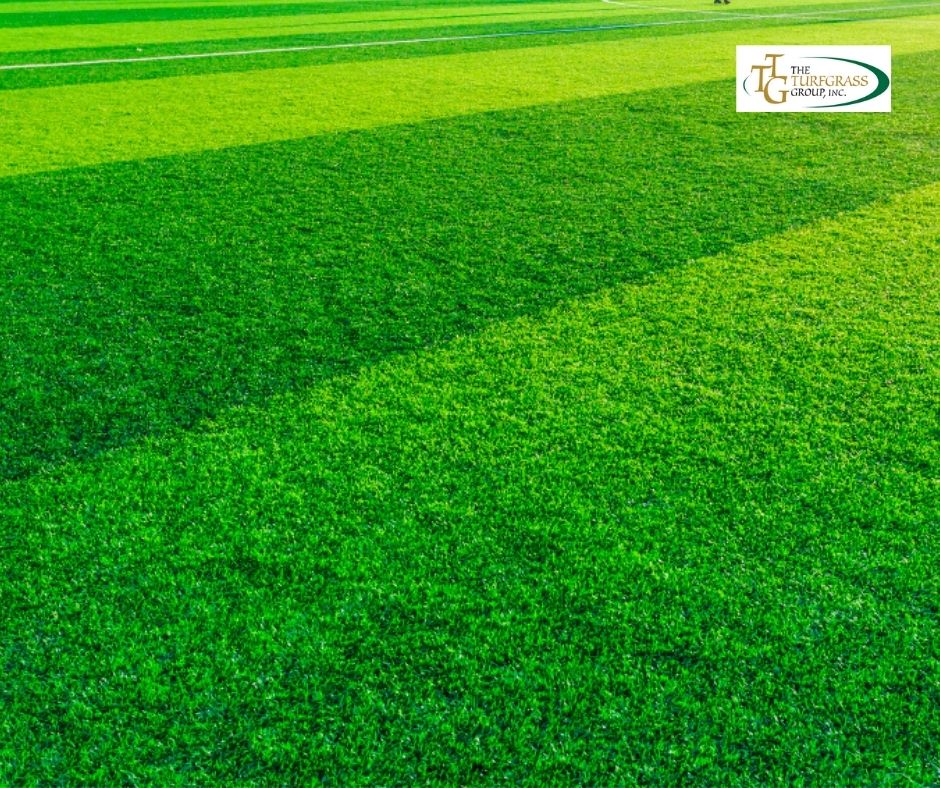
Stadiums are not merely venues for sports events; they are the battlegrounds where athletes showcase their skills and fans come together to witness extraordinary moments.
However, behind the scenes, the quality of the playing surface significantly impacts athletes’ performance and the overall experience for spectators.
Therefore, selecting the right grass grower for stadium fields is paramount to ensure optimal playing conditions and aesthetic appeal.
Understanding the Importance of Quality Grass for Stadiums
Grass, the green carpet of stadiums, is more than just a visual element; it’s the very essence of the playing field.
Just as an artist meticulously selects the finest canvas for their masterpiece, stadium managers must choose the highest quality grass to create a surface worthy of the athletes who grace it.
This natural carpet serves as the foundation upon which athletes run, jump, and compete, bearing the weight of their ambitions and the intensity of their efforts.
Imagine a soccer player dribbling the ball across a field pockmarked with divots or a sprinter stumbling on uneven turf during a crucial race.
In such scenarios, the quality of the grass directly influences player performance, with even minor imperfections having the potential to alter the outcome of a match or event.
Uneven surfaces or poor turf not only increase the risk of injuries but also disrupt the flow of gameplay, diminishing the spectacle for both athletes and spectators alike.
Moreover, the appearance of the field goes beyond mere aesthetics; it contributes to the ambiance of the stadium, setting the stage for unforgettable moments and enhancing the overall fan experience.
A lush, well-maintained field inspires awe and admiration, elevating the atmosphere and creating a sense of pride among supporters.
Conversely, a neglected or poorly managed turf can detract from the spectacle, dampening spirits and leaving a lasting impression for all the wrong reasons.
In essence, the importance of quality grass for stadiums transcends its role as mere ground cover; it is the canvas upon which sporting dreams are painted and the stage upon which they unfold.
Factors to Consider When Choosing a Grass Grower

Selecting the right grass grower for stadium fields is a decision that warrants careful consideration of several vital factors.
Each element plays a crucial role in determining the success and longevity of the project, ensuring that the chosen grower can meet the specific needs and expectations of the stadium.
Below are the critical factors that should be evaluated when making this important decision:
Climate Suitability: The local climate conditions significantly impact the growth and maintenance of stadium turf.
It is essential to choose a grass grower who understands the region’s unique environmental factors and can recommend grass varieties that thrive in the prevailing weather conditions.
Grass Varieties Available: Not all grass species are created equal, and selecting a suitable variety is essential for achieving the desired performance and aesthetics.
The chosen grower should offer a diverse selection of grass varieties tailored to the specific requirements of stadium fields, taking into account factors such as wear tolerance, recovery rate, and resistance to disease.
Experience and Reputation: Experience speaks volumes in the turfgrass industry, and a reputable grower with a proven track record is more likely to deliver quality results.
It is advisable to choose a grass grower with extensive experience in installing and maintaining stadium turf, backed by positive client testimonials and references.
Researching Potential Grass Growers
Before committing to a grass grower for stadium fields, conducting thorough research is paramount.
This process involves delving into various avenues to gather comprehensive information and insights. Here’s a breakdown of the steps involved:
Exploring Online Platforms: Utilize online platforms such as company websites, social media channels, and industry forums to identify potential grass growers.
These platforms often provide valuable information about the grower’s services, expertise, and past projects.
Consulting Industry Directories: Industry directories and listings can serve as valuable resources for finding reputable grass growers.
These directories categorize companies based on their specialties and provide contact information for further inquiries.
Seeking Word-of-Mouth Recommendations: Ask colleagues, peers, and industry professionals for recommendations.
Personal referrals and testimonials from trusted sources can offer invaluable insights into the quality and reliability of grass growers.
Reviewing Past Projects: Take the time to review the grower’s portfolio of past projects.
Look for examples of stadium fields they have installed and maintained, paying close attention to the quality of the turf, attention to detail, and overall aesthetics.
Assessing Climate Suitability
One of the primary considerations is the climate suitability of the chosen grass varieties.
Different grass species thrive in specific climatic conditions, and selecting the appropriate type ensures optimal growth and resilience against environmental stressors.
Evaluating Grass Varieties
The selection of grass varieties plays a crucial role in determining the performance and durability of stadium fields.
Factors such as warm-season or cool-season grasses, tolerance to heavy usage, and resistance to disease must be carefully evaluated to meet the unique requirements of each stadium.
Reputation and Experience
Experience speaks volumes in the turfgrass industry. Choosing a grass grower with a proven track record and years of experience instills confidence in the quality of artistry and reliability of services rendered.
Checking references and reviewing past projects can help gauge the grower’s reputation.
Maintenance Services
Beyond installation, ongoing maintenance is vital to preserve the integrity of stadium fields. Assessing the maintenance services offered by grass growers, including fertilization, aeration, and pest control, ensures the long-term sustainability and performance of the turf.
Cost Analysis
While cost is a significant factor, it should not be the sole determinant in the decision-making process.
A comprehensive cost analysis, considering both upfront installation costs and long-term maintenance expenses, helps determine the value-for-money proposition offered by different grass growers.
Negotiating Contracts
Negotiating contracts requires attention to detail to ensure clarity on terms and conditions.
Key aspects such as project timelines, payment schedules, and warranty provisions should be clearly defined to avoid misunderstandings and disputes later on.
Establishing Communication Channels
Effective communication is essential for successful project execution.
Establishing clear communication channels and designating key points of contact facilitates smooth coordination between stakeholders, enabling timely updates and promptly addressing any concerns.
Supervising Installation Process
During the installation phase, diligent supervision is necessary to ensure adherence to specifications and quality standards.
Monitoring grass delivery, proper installation techniques, and implementing quality control measures are imperative to achieve the desired outcome.
Conducting Trial Runs
Allowing sufficient time for the grass to establish is crucial before hosting any events.
Conducting trial runs under different weather conditions and usage scenarios enables the identification of any potential issues and allows for adjustments to be made accordingly.
Finalizing Acceptance
Upon completion of the installation and establishment period, a final inspection is conducted to assess the quality of the field.
Any deficiencies or discrepancies are addressed, and once all requirements are met, official acceptance of the project is granted.
Conclusion
In conclusion, selecting the right grass grower for stadium fields is a decision that goes beyond mere aesthetics; it directly impacts the performance of athletes and the overall experience for spectators.
By understanding the importance of quality grass and considering factors such as climate suitability, grass varieties available, and the reputation and experience of potential grass growers, stadium managers can ensure optimal playing conditions and aesthetic appeal.
Thorough research, careful assessment, effective communication, and diligent supervision throughout the installation process are essential for achieving successful outcomes.
By prioritizing these elements, stadiums can establish lush, well-maintained fields that serve as the canvas for sporting dreams to unfold and create unforgettable moments for athletes and fans alike.
For further inquiries or to consult with experts in grass growing, you can reach out to The Turfgrass Group.
FAQs
Why is selecting the right grass grower important for stadium fields?
Stadium fields are essential for athlete performance and spectator experience. The quality of the grass directly impacts gameplay, aesthetics, and safety. Therefore, choosing the right grass grower ensures optimal conditions for athletes and enhances the overall stadium atmosphere.
What factors should be considered when choosing a grass grower for stadium fields?
Climate suitability, availability of grass varieties, experience, and reputation are critical factors. Understanding the local climate, having diverse grass options, and a proven track record in stadium turf management are essential considerations.
How can I research potential grass growers for stadium fields?
Utilize online platforms and industry directories and seek word-of-mouth recommendations. Reviewing past projects and assessing climate suitability are also crucial steps in the research process.
How do I assess climate suitability for grass varieties in stadium fields?
Evaluate the compatibility of grass varieties with local climate conditions. Factors such as temperature, rainfall, and sunlight influence grass growth and resilience, ensuring optimal performance on the field.
What should I look for when evaluating grass varieties for stadium fields?
Consider factors such as warm-season or cool-season grasses, wear tolerance, recovery rate, and disease resistance. Each stadium has unique requirements, so selecting the appropriate grass varieties is vital for long-term performance.
Why is the reputation and experience of a grass grower important?
Experience indicates proficiency and reliability in turfgrass management. A grower with a positive reputation and a history of successful projects instills confidence in their ability to deliver quality results for stadium fields.
What maintenance services should I expect from a grass grower for stadium fields?
Beyond installation, maintenance services like fertilization, aeration, and pest control are essential for preserving the integrity of stadium turf. Ensuring the grower offers comprehensive maintenance plans ensures the field’s longevity.
How should I approach cost analysis when choosing a grass grower?
Consider both upfront installation costs and long-term maintenance expenses. While price is important, prioritize value for money by assessing the quality of services offered in relation to the overall investment.